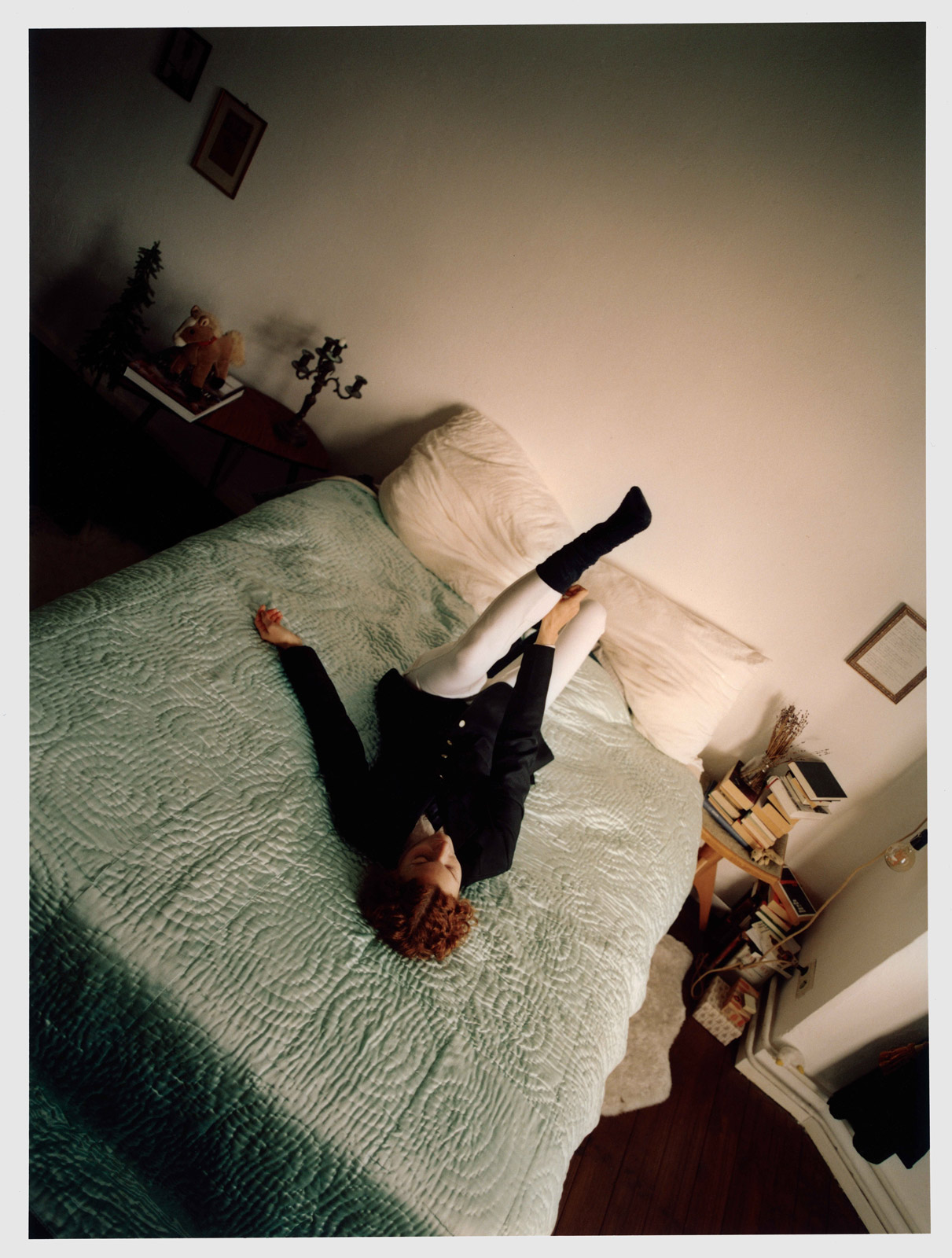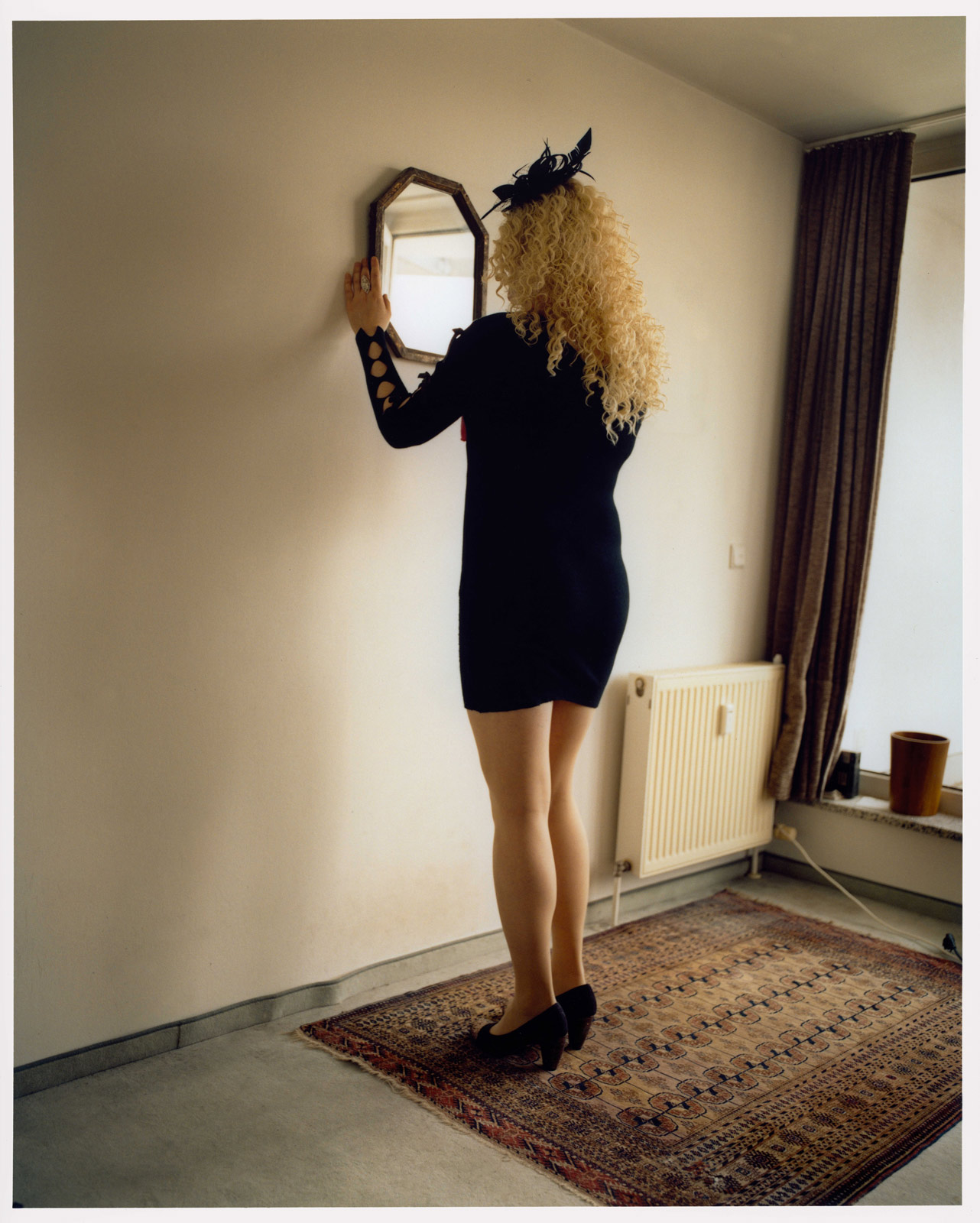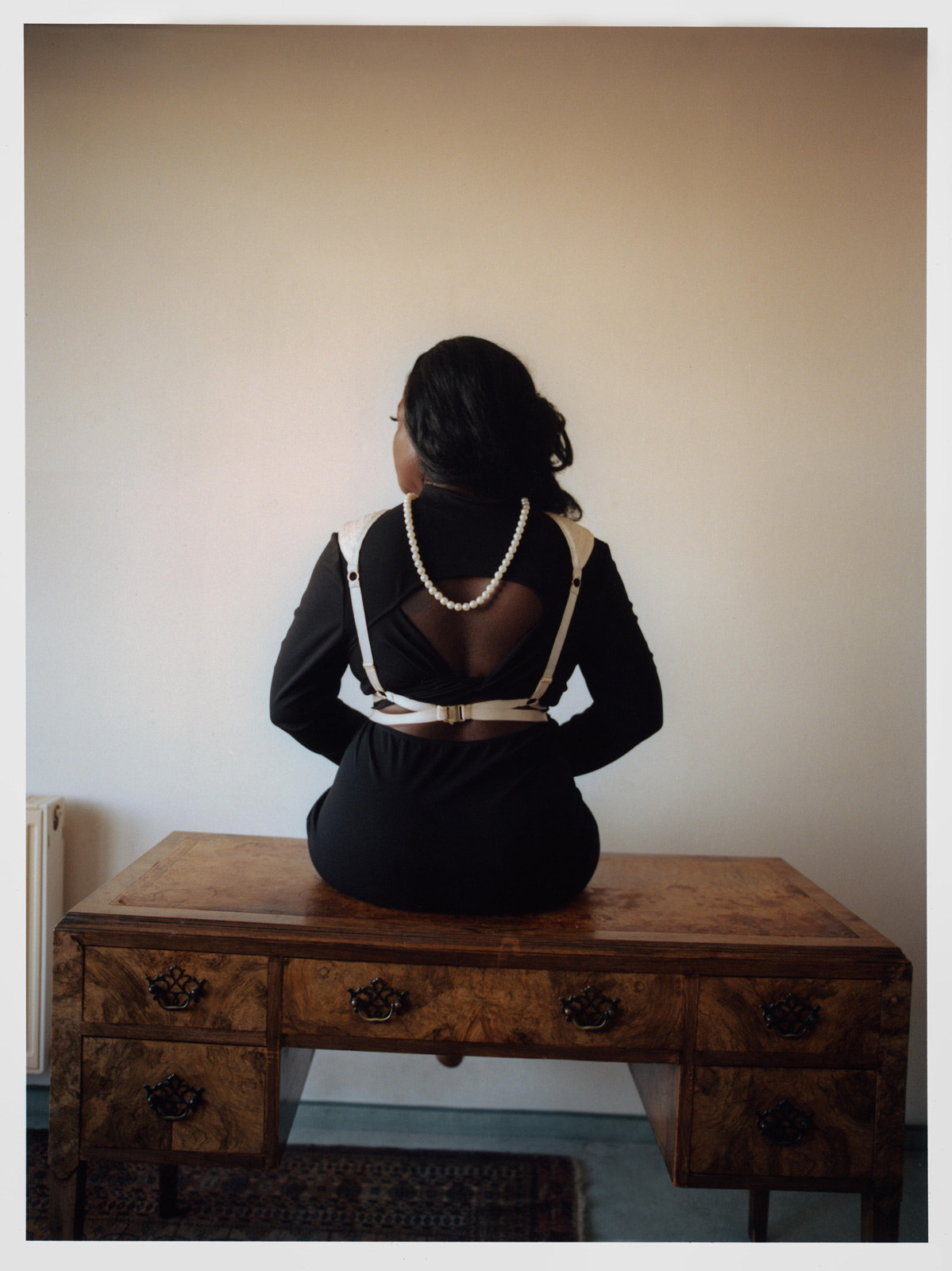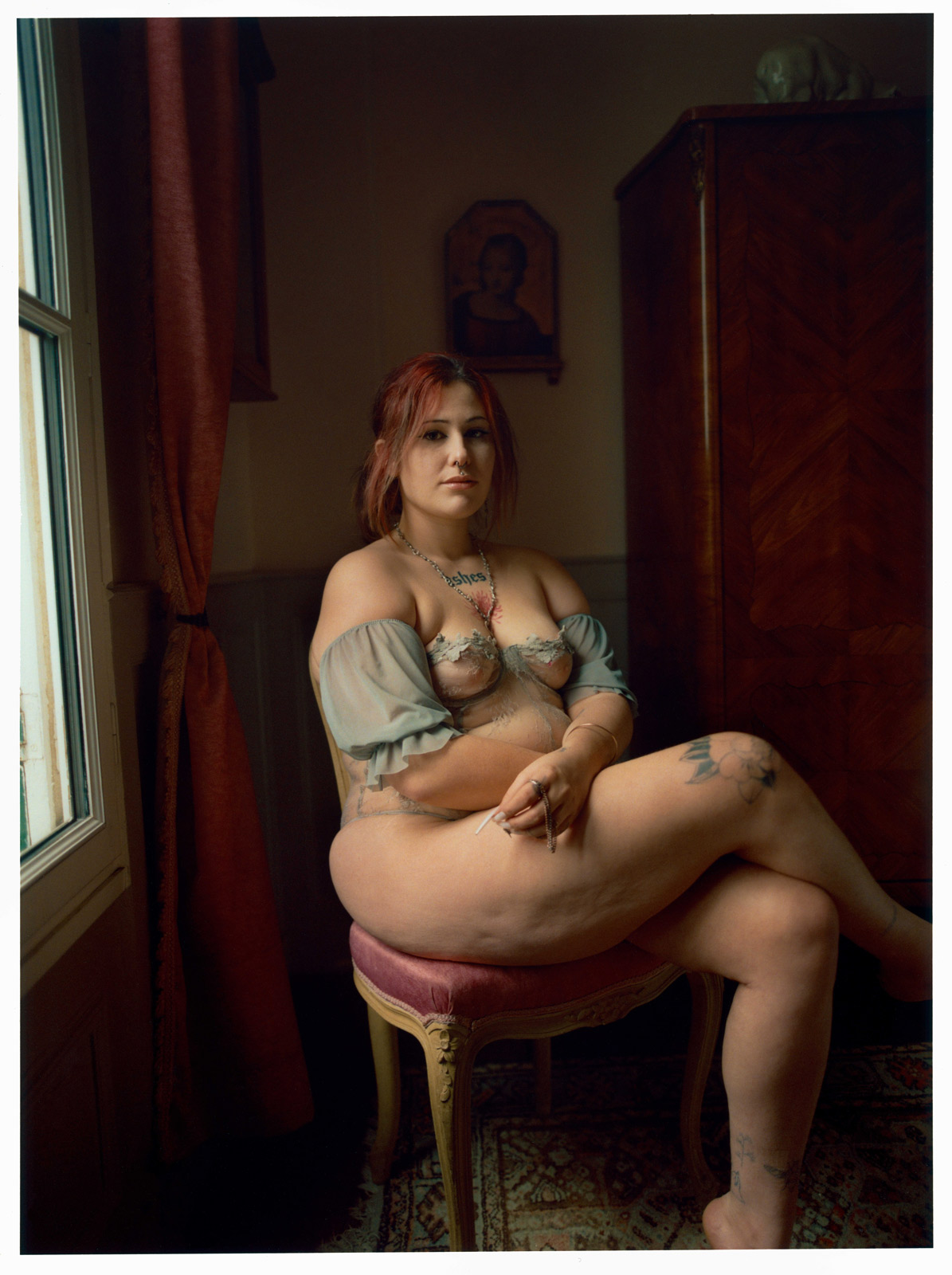Practitioners of the world’s oldest profession discuss the changes they want to see, and what sex work has given them—from creative freedom, to a new understanding of the world
Sex work is the world’s oldest profession. It is also the one most mired in disinformation: from misconceptions around the legality of various services, to the reasons providers choose to pursue the profession, to the value it adds to their own and others’ lives. The industry continues to be a lightning rod for feminist debate, with some factions arguing against the commodification of sex, while others embrace the very real freedoms this line of work provides. “This job has opened up a whole world of possibilities that I didn’t have access to,” says Mary, who’s been doing sex work for four years. “It allows me to live spontaneously. I can survive anywhere. Sex work has allowed me to feel more independent.”
This sentiment is echoed by many sex workers—especially neurodivergent and disabled people, for whom the self-determined nature of sex work can be a vital opportunity to prioritize their own mental and physical well-being. For some, the relatively high rates and flexible hours enable them to focus on their creative passions, finding value in the parts of their life and identity that aren’t tied to money. Still others say that sex work provides an opportunity to reclaim aspects of their identity by determining the terms and conditions under which they are sexualized, and who profits from it—allowing them to embrace objectification in ways that are beneficial, rather than detrimental.
Often, the debate around their labor misses the mark by disregarding not only the alternative forms of economic survival and financial freedom sex work provides, but also its commonality with other forms of transactional exchange and gendered labor. “I tell everyone that I think the purest, the most basic form of being a sex worker is a housewife,” says dominatrix and fetish model Lexi Dark. “It is also the lowest-paid form.”
Many sex workers report that their favorite part of the work is helping people find some peace and pleasure in their daily lives—aspects their field shares with other caring professions like nursing, physical therapy, and social work. That their line of work remains so stigmatized is a testament to the way sex workers’ voices continue to be suppressed in society: from the de-platforming and censorship that’s common on social media, to FOSTA-SESTA, a law that—while marketed as a sex trafficking prevention strategy—has put the lives of countless sex workers at risk by making it harder for them to advertise online and vet their clients.
Here, 15 sex workers talk about what they love and hate about their jobs, and the changes they want to see.
Tamara Solidor, she/her
Escort and BDSM practitioner, working in brothels and the field of sexual assistance
How long have you been working in this industry?
For me, the transition to sex work was fluid, because I have often had dates during which I didn’t experience the desired satisfaction and thought to myself, I could have been paid for this. In that respect, it was only logical to move from privately-lived hedonism to sex work.
What changes would you like to see in your job?
That sex work is completely decriminalized and valued like other freelance professions, without any restrictions. That would change everything.
Alice Danger, they/them
Dominatrix, escort, writer, and artist; in the industry for seven years
How would you describe yourself?
I identify as a whore, a nonbinary dyke, a queer person, and an anti-capitalist, in the sense that I am aiming to work as little as possible and enjoy life as much as possible—and uphold a sense of justice and compassion for other human beings and creatures.
What do you like about your work?
I am neurodivergent, so that plays a big part in why I do this work. I couldn’t stick to a regular schedule. I like that I can structure my work how I want. I also like capitalizing on the fact that sex and money are such shameful topics for people, which they shouldn’t be, really. So doing sex work is a little fuck you to the system we live in. I think as whores, we get this privileged window into the way the world actually works, and we are not naïve—because often, the people who hire us do so because they have trapped themselves in this system, and they still need a sense of release, or tenderness, or whatever it is that they are looking for.
What changes do you wish for in your job?
Decriminalization everywhere. Right now, there are only three places in the world where sex work is decriminalized: New South Wales in Australia, New Zealand, and Belgium. Full decriminalization means that there is no penalization of the client or the provider. There’s also partial criminalization, also known as the Nordic model, where the client is penalized but the provider isn’t. Then, there is full criminalization, which means clients and providers are all subject to criminal persecution, and that’s how it is in most parts of the world. Legalization, like we have it here in Germany, is basically a way for the state to capitalize off of our earnings without protecting us in any way. It is in your government records that you are a sex worker, and you have to pay taxes on your earnings. You get a ‘Hurenkarte,’ which is like a whore card. That’s obviously offensive, and also makes it difficult to travel.
I also wish that sex work could exist in a different way, outside of the current beauty standards. There is a big whorearchy problem, meaning the people who are most conventionally desirable, and therefore earn the most money, are the people who already have access to more resources—for instance, white people who come from an upper-middle-class background. I want a change in how we see desirability, so that my friends and colleagues who are people of color, trans people, and gender nonconforming can be themselves in this industry. For example, I work as a cis woman, which I am not; I know trans women who work as men, which can mentally be very damaging, and people of color who have to use their identity as a fetish to market themselves.
When you go to the Whore’s March, which takes place every year in June, I think you can see very clearly how much hatred and lack of understanding there still is around the topic of sex work. I don’t think that this will change until we, as a society, actually examine our beliefs around sex and money.
“I have been sexualized, like most girls, since I was 12 years old—and for the first time, there is a version of me who decides when that will happen, and who makes a profit. I feel like a kind of feminist Robin Hood.”
Lola Strawinsky, she/her
Escort and actress; in the industry for nine years
What do you like about your work?
It’s such a super rad, open community. I also like that, when you book my service, it’s a clearly defined framework.
What changes would you like to see in your job?
On a legal level, I would like to see this profession classified like any other self-employed profession or activity—for it to be seen and respected as a job. I wish that people would contribute to destigmatization by talking less about us and more with us. People from the industry should be asked for their expertise when it comes to political decisions affecting our job. I also wish that an attempt would be made to depict a real image of sex workers, not just stereotypes that push us into the victim role.
Aria, she/her
Escort; in the industry for five years
What is it that you’d like me to know about you?
That I’m a virgin [laughs].
What are common misunderstandings of your work?
Often, when people who aren’t really close to sex work ask questions, it’s more for salacious details. I think that people misunderstand how our work can actually be mundane, normal, comfortable.
Charlotte, she/her
Sex worker and student; in the industry for four years
What do you like about your job?
There is a feminist commitment to recovering the sexualization of our body. I have been sexualized, like most girls, since I was 12 years old—and for the first time, there is a version of me who decides when that will happen, and who makes a profit. I feel like a kind of feminist Robin Hood.
What changes would you like to see in your work?
In France, sex workers are allowed to sell their services, but clients are not allowed to buy them. These laws lead to death, because having only partial legalization leads sex workers to hide their practice and increases the risks that come with this job. It also makes it hard to find accommodations, because there is a law which was supposed to reduce pimping—but what it really means is that the owners of a house that a sex worker lives in, or even their partner, can be considered ‘pimps.’ So, most of the time, when the owners of the property find out that their tenant is a sex worker, they kick them out.
Isabelle, she/her
Sex worker; in the industry for 14 years
What do you like about your job?
My favorite thing to do is help people, no matter what they need. I love my job, because there are a lot of emotions involved; there is adrenaline and passion, and I’ve learned to be more empathetic toward other people.
I have a message for everyone who is involved in this work: When you can help someone, do it—but when you can’t, don’t get in their way!
Lexi Dark or Frau Dark, she/her
Dominatrix and fetish model
What do you like about your work?
I like that nobody tells me what the fuck to do—except, of course, the German government.
What changes do you wish for in your job?
People should really reconsider the way they think about sex workers. There is a stigma that is unnecessary, dangerous, and unfair. I think the purest, the most basic form of being a sex worker is a housewife. It is also the lowest paid form. People love that shit; they like to aggrandize house work, but not sex work. It is the same fucking thing.
Liara Roux, she/her, they/them, and he/him
Sex worker, writer, and organizer; in the industry for eight years.
What do you like about your work?
My favorite thing about sex work is that it’s a very intimate experience, and I get to see behind the regular fronts people put up. A lot of people will put on a mask for society, but once you get fucked, it can be harder to do that.
How have laws or the police impacted your ability to do your job?
When advertising my work, I have to be very careful to word everything in a way that it remains within a legal gray area. A lot of sex workers I know have been arrested at the border, because they are accused of doing something illegal. I was once, and it was really scary. They weren’t as horrible to me as they were to some of my friends, but your life is entirely in other people’s hands, a traumatic experience.
Lollo, she/her
Erotic masseuse, outcall sex worker, pornographer; in the industry for three years
What do you like about your work?
It taught me a lot about my own boundaries. I like being in charge, being respected for my work, and seeing the change in somebody’s demeanor before and after our session; often, the other person is a lot more relaxed, and feels better than they did beforehand. Being a conduit for that is a really nice thing.
What changes do you wish for in your job?
So many people have really strong opinions about porn or sex work, without personal experience. I would like to be open about the work I do and not be judged for it, but it still seems to be the most taboo job, even now.
Maddox, she/they
Fetish worker; in the industry for five years
What do you like about your work?
My favorite part is the connection I make with people, and how I can help them deal with their day-to-day lives by bringing them some sort of peace and grounding—helping them reset their nervous system, and even open their mind to something they didn’t think they’d be into.
What freedoms does your job allow you?
To move at my own pace, and to express my hedonistic side. We don’t always get that chance in life, and luckily, through my work, I get to do it a little more often than a regular person.
What is one of your favorite experiences you’ve had at work?
I love encouraging my clients to explore something taboo that they thought they couldn’t do. I had a sub who was very into spanking, and didn’t think they wanted any more, but we moved up to flogging and paddling. I love doing that for people. I am your perverted sherpa. Come climb this mountain with me.
What drew you to this work?
My downstairs neighbor was a dominatrix. I remember her coming home in red lace-up boots and I was like, I want those so bad! She told me a couple things about the lifestyle. I was intrigued, and I already knew I was a different kind of person, growing up as a punk, goth, alternative kid. That was back when I was 18; I started working as a dom when I was 28, and I’m 35 now. She’s like a mentor to me.
How open are you about your career?
I decided to become public about my work when SESTA-FOSTA came about, and there was a lot of censorship happening. Once I started posting pictures of me in a dungeon or fetishwear, I started finding like-minded people and a community, and now I’m very open about what I do. That is a privilege, because a lot of sex workers still have to live in private and in the shadows.
My family would rather me not be so out and open, but it’s something I’m proud of. It’s something I wished for and dreamed about. I made it happen. I’m successful at it. Why are other people allowed to take pride in their work, but someone like me isn’t?
Mary, she/her
Sex worker; in the field for four years
What do you like about your work?
It’s a job that allows me a window into other worlds, and I have wonderful memories with my clients that I would erase for nothing. I also like sex, human contact, and the whole psychological dimension my work brings me.
What freedoms does your work allow you?
Sex work allows me to be free and to be myself. I don’t need to force myself to go do a job that wouldn’t stimulate me. This job has opened up a whole world of possibilities that I didn’t have access to, and saved me from a life full of anguish. It allows me to live spontaneously; I can survive anywhere, in any city. This job has allowed me to feel more free and independent.
What is one of your favorite experiences at work?
My favorite thing is when I see people who feel alone in their lives, or who don’t have much human contact, and I can really give something human to someone beyond the sex. Sometimes there is real connection that is made.
Zina, she/her
Escort
What do you like about your job?
It never gets boring, and it’s very adventurous. You meet people you wouldn’t otherwise.
What changes would you like to see in your job?
There is a lot of stigma around it, and I would like to see that change.
“I think as whores, we get this privileged window into the way the world actually works, and we are not naïve—because often, the people who hire us do so because they have trapped themselves in this system, and they still need a sense of release.”
Nikki Sweet, she/her
Sex worker and musician; in the industry for 12 years
What do you like about your work?
I really love the connections and intimacy of it. People share things with me that they wouldn’t share with their spouse or best friends, and I get to be a part of people’s lives. There is a very beautiful vulnerability to it that draws me to sex work. That said, like everyone in capitalism, I work to be able to provide for the rest of my life. People say ‘You do it for the money’—but that’s anyone doing any job!
What are common misunderstandings of your work?
One big misconception is that it’s easy, or anyone can do it. It definitely takes a specific type of personality and mental stability to be able to do it successfully. Another common misconception is that it is always a crime; there are a lot of forms of sex work that are completely legal, like stripping. Being a dominatrix is in the gray area.
I think it’s important for allies to know that sex workers are fighting for decriminalization, not legalization. If you want to support us, you should know that legalization can actually harm us with new regulations, taking away the refuge that illegal sex work can provide for people who are undocumented. There are a lot of different reasons to want your income out of the books.
What freedoms does your job allow you?
It allows me to pursue my passion for music and performance art. I often have to remind myself that my value is not based on my income, and doing sex work allows me to find my value in these other areas or my life that aren’t centered around money.
What is one of your favorite experiences you’ve had at work?
When I recognize how valuable and beautiful and unique this experience is. For instance, watching the fireworks on the Fourth of July with my client was really special. I love spending holidays and birthdays together. Once, I spent a holiday with a client and it was really romantic. He told me that it was the most special night he’s ever had, even more special than any night he spent with his first wife. I asked him if that included their wedding night, and he told me that it included their entire honeymoon.
In that moment, I realized love is not necessarily a scarcity. When I work, I sell an emotional experience more than just a physical experience—and it dawned on me that a lot of people in this world don’t experience love in their lives on a deep level. He was married to this person for a year and never had as deep a connection as we shared that night, which is an experience he paid for, but that had a sense of genuine care involved. Sex workers provide something really important, because love is fundamental.
What are your dreams and goals?
To perform more as a musician, and start a record label for artists with stigmatized identities. I believe that representation is a form of harm reduction, because growing up, TV and movies helped me realize who I was. For instance, media helped me discover I’m polyamorous, and I didn’t fully understand my queerness until I watched The L Word. My dream would be to support other people making art so that more people feel more free to be themselves, and become more accepting of those they deem ‘different.’
What drew you to this work?
Sex work allows me to determine the terms and conditions of how I am sexualized, whereas my experience in other industries subjected me to abuse and mistreatment, especially unwanted sexualization—situations that left me feeling powerless if I stayed, or jobless if I left.
How open are you about your career?
I’ve been out to my nuclear family for years now. When I put out my album, I invited my entire family including aunts and uncles—so I had to invite my grandma, too. She’s almost 92, and she knows now I have an EP called ‘3 Holes.’ It’s a sex workers’ anthem. I hope she doesn’t pick up on it and have a heart attack!
Sulema Vasquez, she/they
Sex worker and healthcare provider; in the adult film industry for four years, and doing sex work since they were 18
What do you like about your work?
I like that I get to see the world and people from a different perspective. I’m very curious and like to learn new things, whether it’s about healthcare, or people, languages, culture.
What changes do you wish for in your job?
People should know that sex workers have hobbies besides sex! They have normal aspirations for their life, dreams and goals. They also value relationships, and they’re parents. I wish that sex work was taken serious as a career, because this is a job, and we have to find people to look after our children while we work. I wish I was able to demand the same childcare support as one would with any other job.
Mrs. Venina, she/her
Cam girl
What’s your occupation?
I am a cam girl, but I see myself more as a performer—working with my intuition, my understanding of human psychology, my spontaneity, imagination, and humor.
What do you like about your work?
The complete independence and complete freedom of not having to explain anything to anybody. I have absolute control over my rates and I don’t have to put up with a shit pay or with somebody’s moods. I also get to be myself and to be sexual, which is something I need.
I find that [outside of sex work] there is a script for having sex with someone, and that leads to dishonest encounters. For me, that script is gone when I am on cam because my clients don’t need to use manipulation to have a sexual encounter with me: it is just contractual. I like how confident doing this job has made me, and how much I’ve learned about human psychology through it. I’ve started seeing beneath appearances.
All images were created in collaboration with each talent. Location, outfit, and make-up were chosen by each talent, and the final images seen in this series were selected by the talents themselves. They were asked to choose the images that they felt represented them most.
Photo Assistant Maxine Stiller. Special thanks to Hydra Berlin, SWOP Brooklyn, Diamantino Labo Photo Paris, Laramie Makeup, Theaterkunst Berlin, Lars Alexander Beppler, Maddie Adouritz, Mimi Stein.



















































